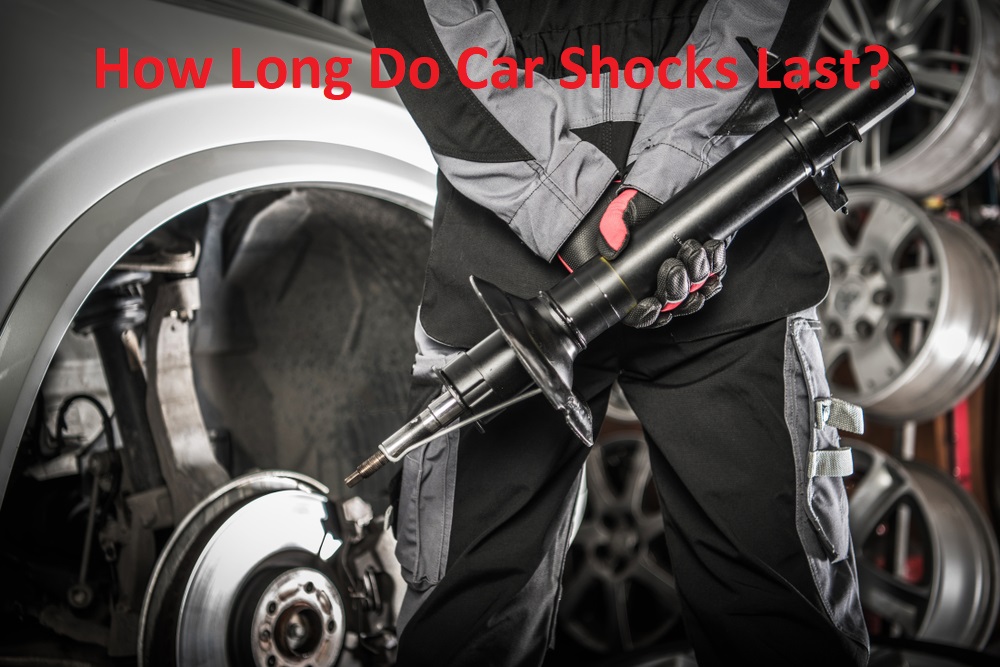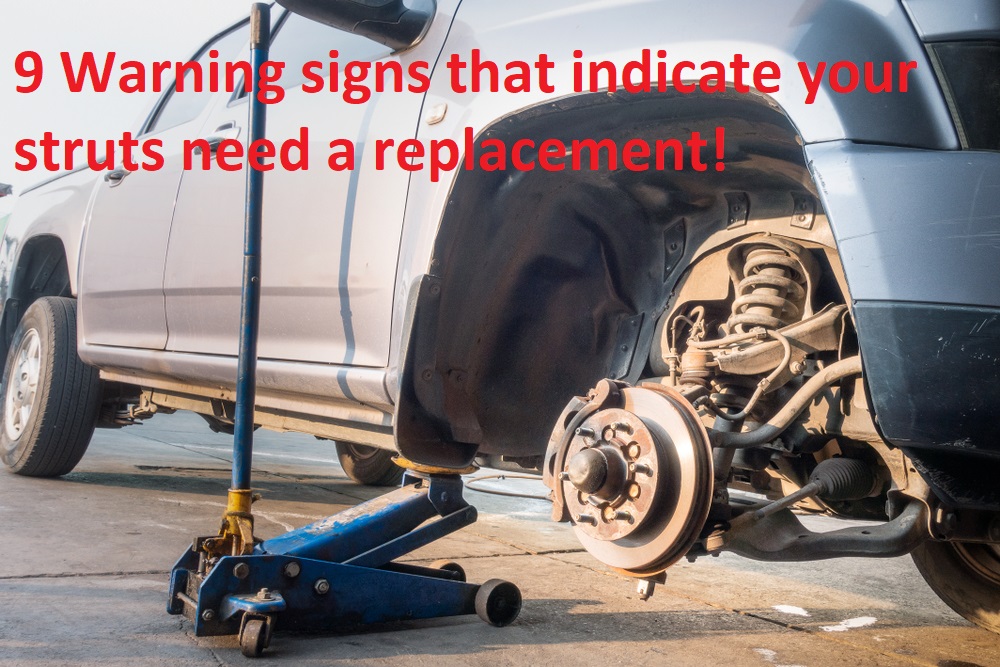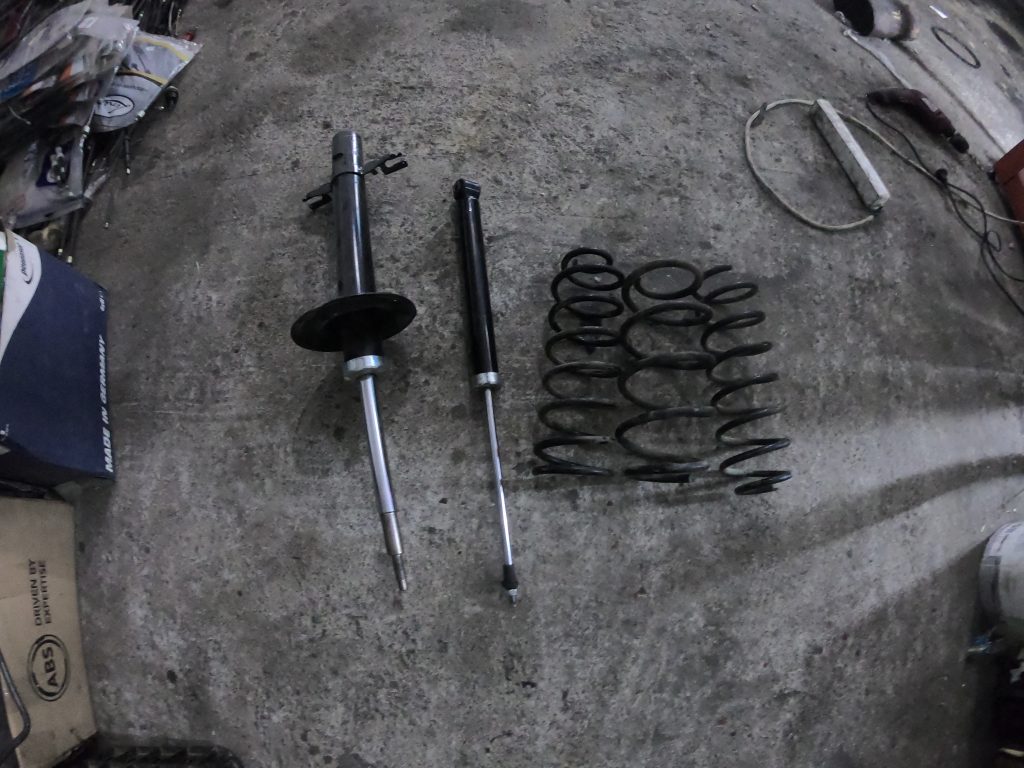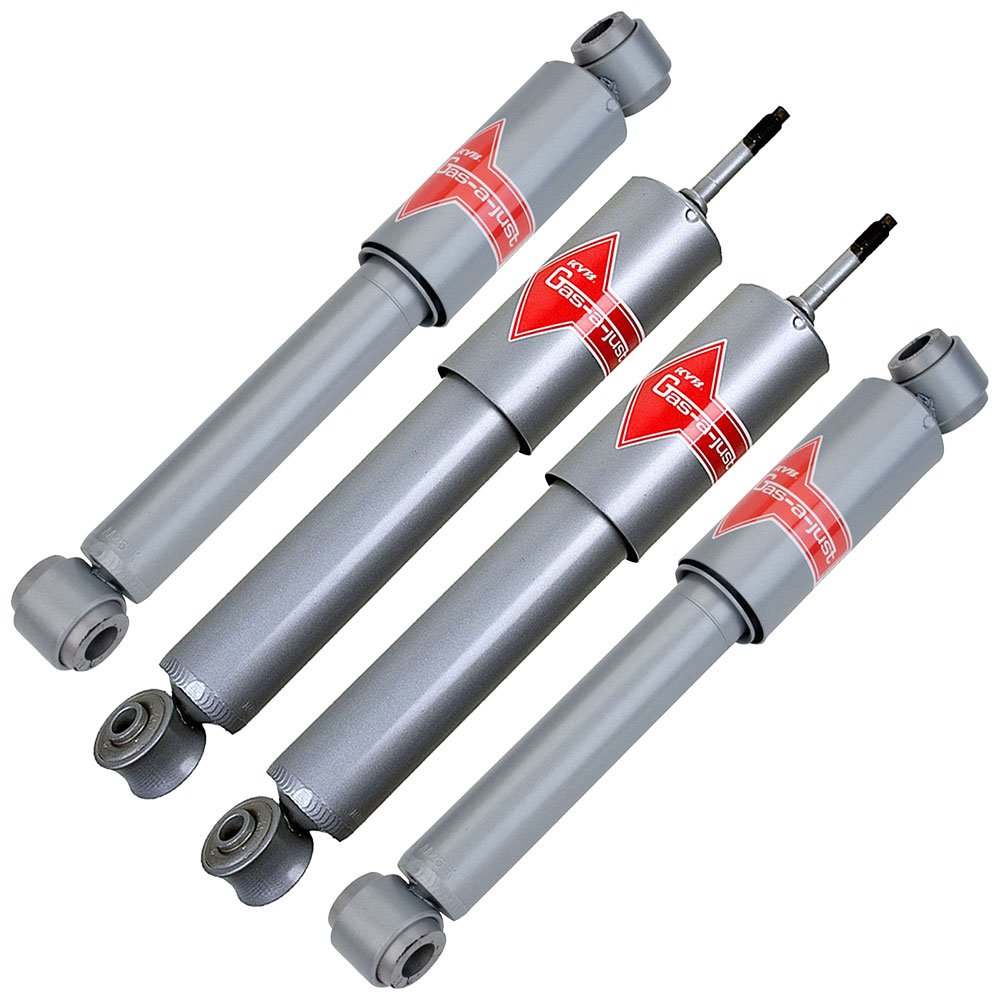If you notice any weird noises or clunks while driving your car, it may be a sign that your shocks need replacing. Your car shocks lifespan depends on how you use your vehicle. Are you using your vehicle mostly for the highway? Do you usually take it off-roading?
Shock absorbers are one of the most important components when it comes to your vehicle’s suspension, so you should definitely pay more attention to them.
How long do shocks last?- Expert car mechanics usually estimate the service life of car shocks to be around 50,000 to 100,000 miles. Car shocks typically don’t need to be replaced at this mileage. It depends on how you’ve taken care of your vehicle. If your suspension system isn’t showing any sign of an issue, it is still a good idea to check them.
What Causes Car Shocks to Go Bad?
There can be a lot of factors that can make car shocks go bad. To ensure your suspension system is in good shape, you must know what causes them to fail.
Driving on Bumpy and Rough Roads
Driving over fewer bumpy roads will result in a longer car shock lifespan. Avoiding terrains that have potholes and uneven surfaces can reduce strain on your car’s suspension components. Sometimes driving over rough and bumpy roads is unavoidable.
To minimize damage to your car shocks, you can drive more slowly and carefully when driving on these types of roads. You should also be more conscious of potholes on the road. Once you hit a big and deep pothole, not only does it damages your car shocks, but it can also affect your wheels and tires.
Stop and Go Driving
Stop and go driving applies in heavy traffic. Avoiding city traffic is a good way to prolong your car shocks. Rush hour traffic is unavoidable, whether on highways or in the streets, but it is a good idea to avoid this situation.
Not only can you save gas when avoiding stop-and-go traffic, but you also prolong your car’s shocks. Because you use the brakes more frequently in traffic, you upset the car’s balance more frequently. It can be more damaging to the car’s shocks when you brake abruptly every time you stop.
It is recommended that you step on the brake pedal in a modulated and light way to balance the car. Light pressing of the brake pedal also preserves your brake pads’ lifespan, minimizing your maintenance costs.
Overloading Your Vehicle

Car shocks have a maximum load capacity. Maximum load capacity refers to the total weight that your car can safely carry when it is operated. If you surpass this load capacity, you can damage your shocks and even your car’s chassis.
Your vehicle may be overloaded when you carry too many heavy items inside your vehicle. Having too many passengers inside your car can also damage your car’s shocks. When your car carries heavy loads all the time, it can quickly wear your car’s suspension system.
The springs can distort and crack from the strain that it receives. A quick check on your car’s manual for its load capacity is an excellent way to avoid overloading.
Also, a good practice is to upgrade your shocks if you plan on overloading or towing a trailer for example.
Weather Conditions
The weather is one factor which you really can’t avoid or prevent from damaging your car. When you live in an area where snowy weather is frequent, road salts may damage and wear out your car’s shocks because of corrosion.
You may not avoid the weather, but you can mitigate its effects by cleaning out your car’s suspension system regularly to prevent it from corroding.
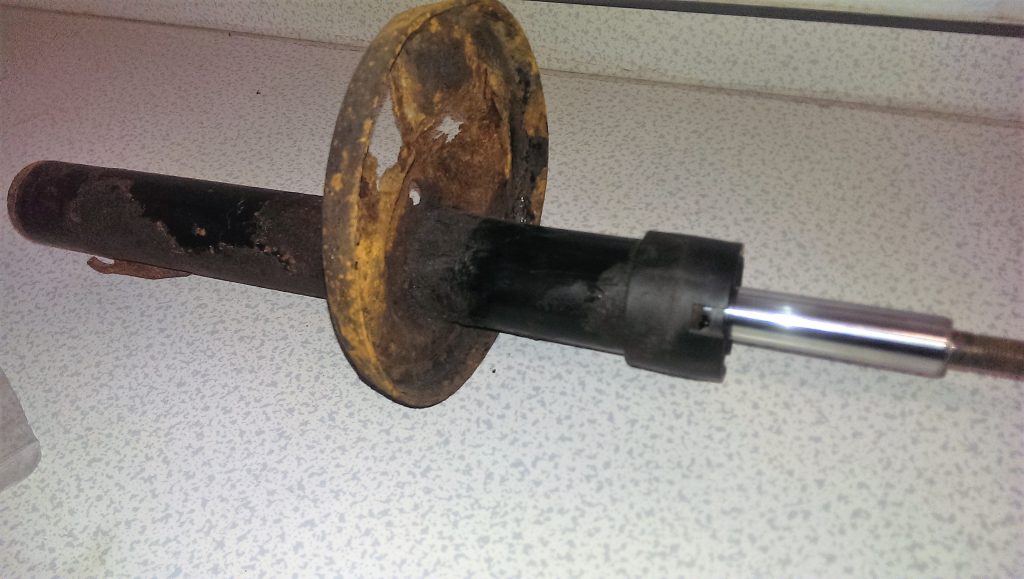
Signs and Symptoms of Bad Car Shocks
It can be challenging to know whether a car shows signs of failing shocks. Knowing what signs and symptoms to check will let you repair any issues early on, preventing any irreversible damage.
Difficult Steering and Turning
Difficulty in steering your vehicle isn’t always related to the power steering component. Your car’s steering is also part of the suspension system. Worn shocks can make turning stiff and can also produce unwanted noise.
Paying keen attention to your vehicle when turning is a good way to check if the car shocks are good. The vehicle must be stable when doing turns, and it must be easy to turn when it is moving slowly. Usually, a drifting feeling is present while turning if you have a bad suspension component.
Bumping and Knocking From the Rear Shocks
Car shocks have the main job of keeping the car stable and planted on the road. The coils in the shock suppress the energy created when driving over bumps and potholes.
When you notice some noise and harsh jarring when driving over rough roads, it usually means that your shocks are going bad. The tires can lose contact with the road, and it can be dangerous to drive your vehicle.
The Vehicle Is Not Level When You’re Driving It or When It Is Stopped
When your vehicle’s shocks are worn or damaged, driving will feel unstable. It can cause the vehicle’s front end to dip down or squat the rear end when braking. If you notice that the car is lurching forward while braking, it is a good sign that a mechanic needs to check the car’s shocks.
This phenomenon happens because the suspension components cannot handle the vehicle’s weight. It is a sign that the shocks are worn or damaged.
Unusual Tire Wear
Unusual tire wear can signify a suspension component issue. It may indicate that wheel alignment is off, but it could also mean that it may be caused by failing shock absorbers.
Bad shock absorbers can cause quick tire wear. If you notice your tires going bad quicker than usual, it may be worth checking your shocks if they are failing. Uneven tire treads can be hazardous and can make you lose control of the vehicle, especially when driving on wet roads.
Preventing and Maintaining Your Car Shocks From Failing
Early Detection of Your Shock’s Issues
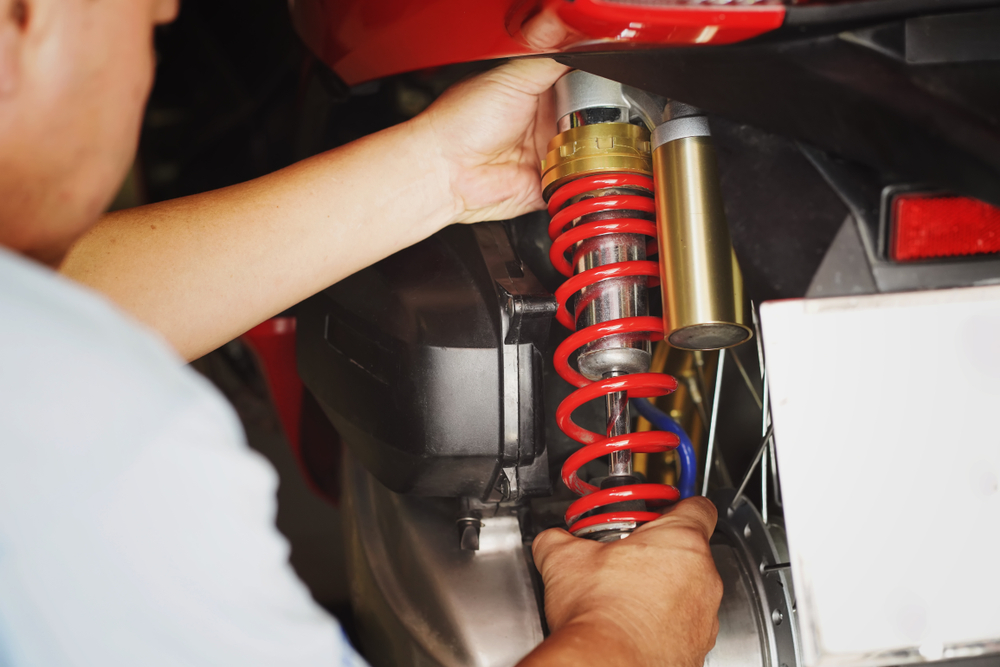
Immediate detection and response to your car shock issues can save you a lot of money. It can prevent further damage to your car’s suspension system. Mechanics can easily check for issues, but it is beneficial if you can also check for problems that need attention.
Being aware of your car’s issues is handy if there isn’t a nearby mechanic in your area and you notice that your car shocks are going bad. Repairing and replacing any broken parts as soon as possible can prevent any irreversible damage.
Make Sure That Your Tires Are Properly Inflated
Tires are one of the most important parts of a suspension system. If it is not properly inflated, it could prematurely wear out suspension components like your car’s shocks. You should follow what your tire’s recommended pressure is to avoid any issues. Regularly rotating your tires also evens out the wear and tear.
Replacement of Shocks Needs to Be In Pairs
Doesn’t matter if you decide to put nitro shocks or hydro shocks, it is recommended that you replace all the shocks. All of the car’s shocks are exposed to the same amount of abuse. Replacing all four at once saves you time and labor costs. One shock failing indicates that the others are going bad as well.
Inspection/Lubrication of Suspension, Joints and Bushing
Mechanics should inspect your car’s joints, suspension, and bushings at every oil change. They should note if there are any signs of wear and damage. Ball joints and tie rod ends need lubricating when the car is old, as well as the shocks and struts themselves.
It is a good idea to include suspension lubrication whenever you do your oil changes; joints and bushings are connected to your car shocks, which can affect it if one component goes bad.
The function that car shocks provide is of huge importance to your vehicle, that’s why you should always keep them in mind.
Protect Your Car Shocks From Damage by Driving Carefully
Besides the usual wear and tear your car shocks undergo, they are also exposed to the elements. Water, chemicals, and road salts may corrode your car’s shocks. Corrosion can quickly degrade your car shocks, and when it happens regularly, replacement is guaranteed.
Doing your part by driving less in unpleasant weather conditions can prolong your shocks. Driving over smooth paved roads also prolongs your car’s shocks. Avoiding driving on bumps and potholes can also be a big help.
Check for Shock Absorber Leakage
Shock absorber leakage will soon need replacement and can damage other suspension components when the issue is not addressed. A leaking shock absorber is dangerous because it can put the car out of balance. It can be dangerous, especially if you are driving over winding roads where good handling is important.
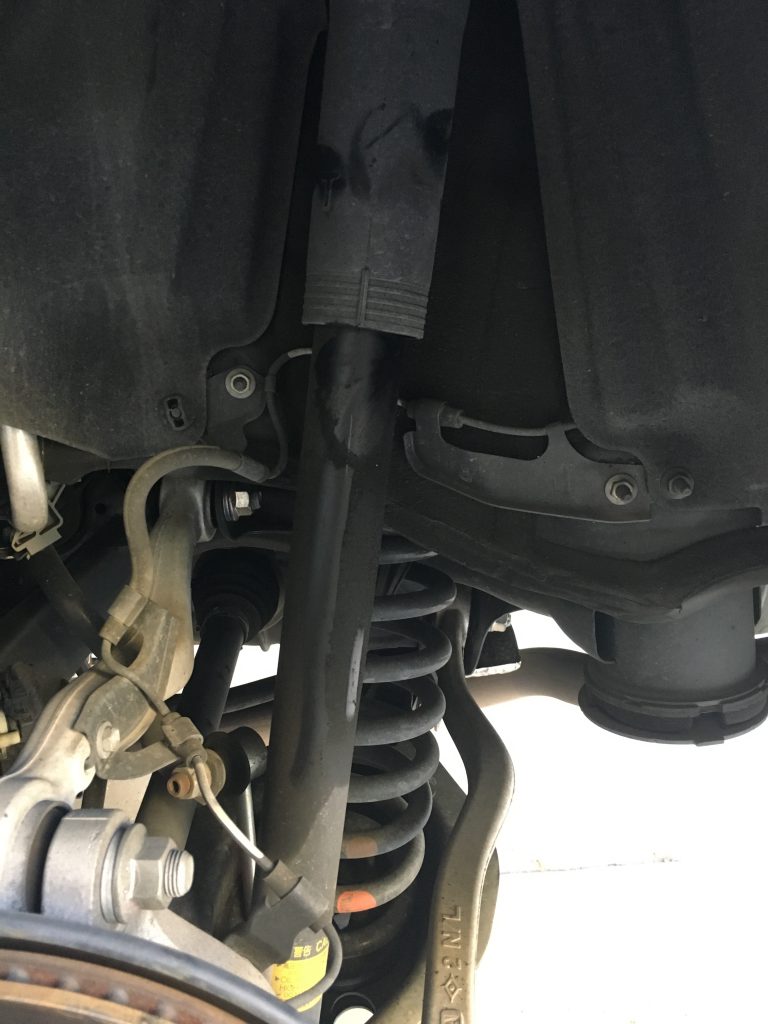
Check for Loose Bolts and Worn Mountings
You should regularly check for loose bolts on your car’s shock. It will usually result in rattling and bumping noise when driving. Sometimes you only need to replace these loose bolts and bushings.
In some cases, shock mounts might fail due to vehicle age and natural wear and tear. Collision damage and contamination are two more causes of a damaged shock mount. Immediate shock mounts replacement is needed to avoid any further damage and inconvenience.
Now It’s Your Turn!
I really hope that this helped you.
Now I’d like to ask you, what’s the first thing that you’ll do since you read this article?
Are you going to check underneath your vehicle for possible car shocks leakage? Or maybe you are going to implement lubrication on every oil change?
Either way, if you liked the content and find it helpful please leave a comment. Maybe you have a question or two about your car shocks, I’ll be more than happy to answer!

